Ivy Leaguers, Find Your Spines
I spent my years at Columbia ignoring my common sense in the face of a glaring double standard. Now my classmates cheer on murder and I’m sitting with my shame.
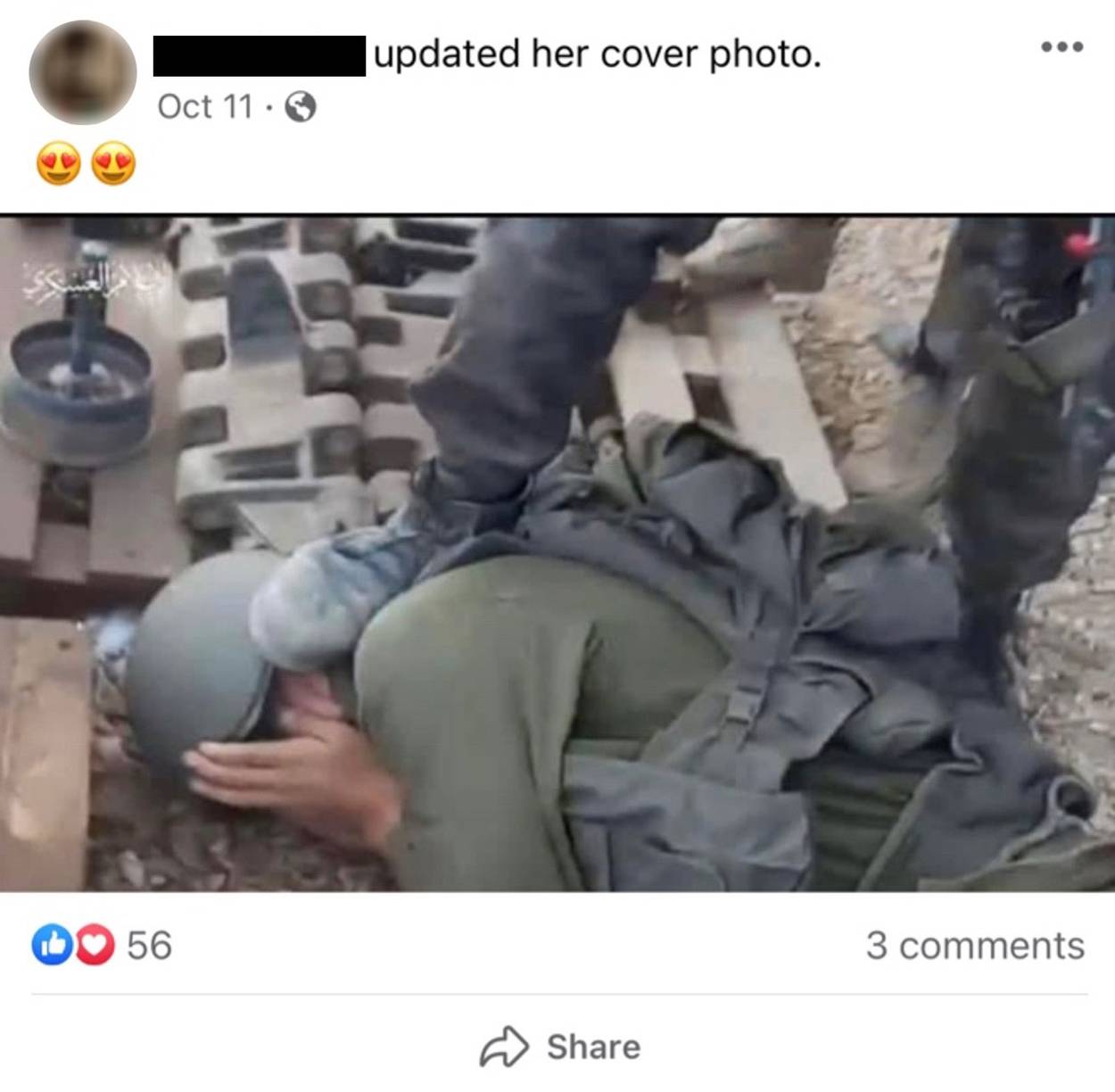
Facebook screenshot
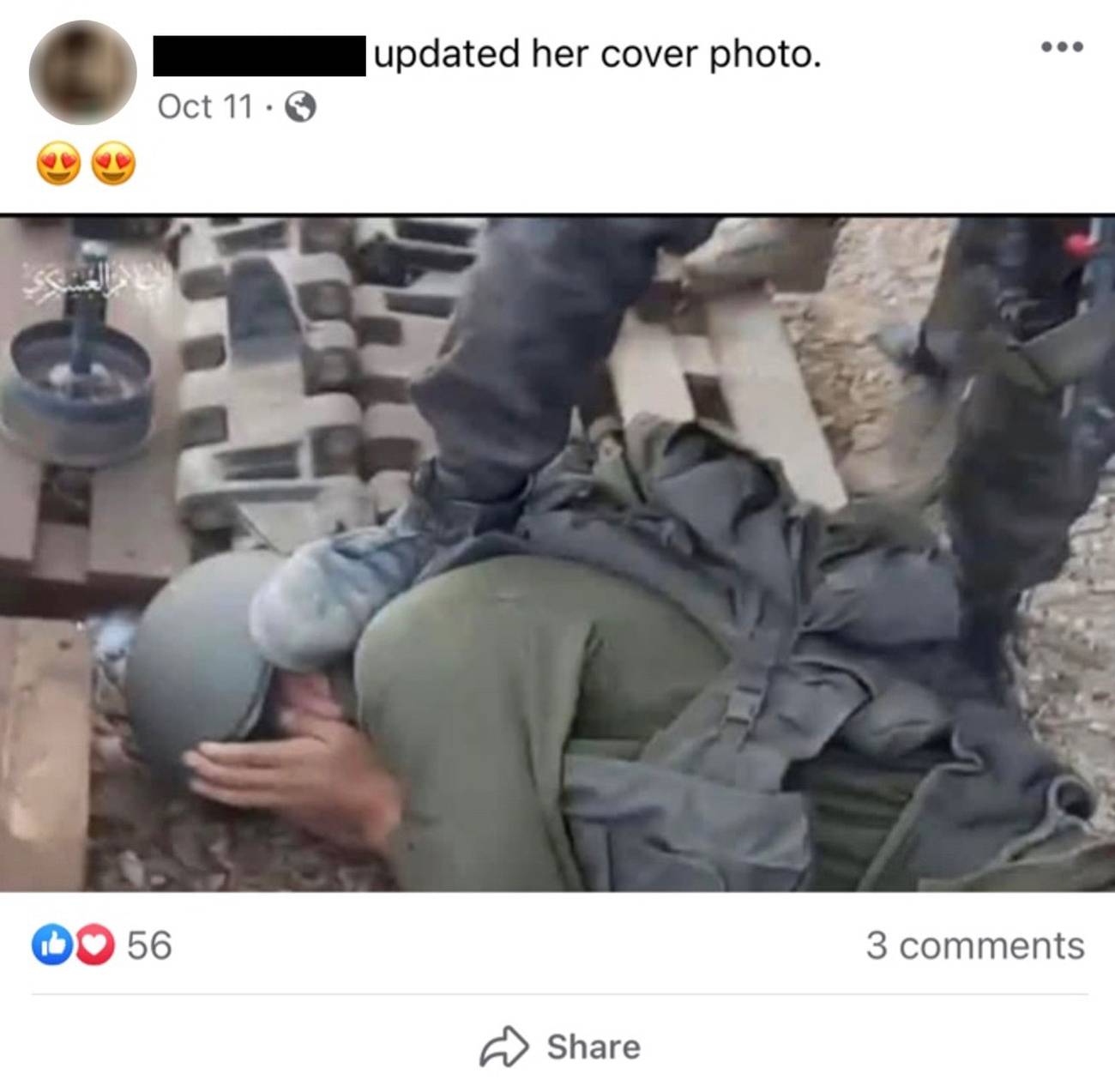
Facebook screenshot

Facebook screenshot

Facebook screenshot
A picture of a killing, shared proudly with a “heart eyes” caption. Who posted this on Facebook to revel in mass rape and torture, four days after Hamas slaughtered 1,400 people? A devoted member of Islamic Jihad? A commander of Hamas? Nope, this is a girl who graduated alongside me from Columbia University, a girl who was a regular guest in the house where I lived, a girl with whom I had several mutual friends.
She wasn’t an actual antisemite, these friends said. Scribbling Israel off any map she saw and vandalizing Jewish event posters with “fuck Israel” graffiti? No, she was simply voicing her legitimate objections to the Jewish state. The incident in sophomore year, when she crashed Holocaust Remembrance Day to chant “From the river to the sea, Palestine will be free” over the names of the murdered being read aloud? That’s normal, they said, in the arithmetic of decolonial theory and the higher math of relative oppression.
We don’t want to take sides, they said. Forget the screed she just posted on Twitter about annihilating the Jews—she might feel left out if we don’t invite her to come to our house party to glare at me over a Solo cup. Oh, and would I mind bringing her to my room so she could cool off from the sweaty dance floor in front of my AC unit?
I should stress here that these friends were not coming from some sort of radical activist Columbia scene. I was in arguably the most vanilla squad on campus. My friends were all in fraternities or sororities, the Moncler-wearing offspring of lawyers and bankers who financed their six-figure private high school educations. Nearly all of them moved along to work as investment associates or junior consultants (my favorite example is the wealthy, half-Lebanese girl from Greenwich, Connecticut, who constantly railed against Israel’s geopolitical evils before moving to Qatar to work for McKinsey Doha, presumably to participate in the firm’s renowned activism on behalf of the oppressed).
My experience was just “the vibe,” as they say, everywhere at Columbia, all the way from the zealous radicals to the normies like me and my friends. Simply being physically present on campus, let alone actively participating in any element of campus life, meant being surrounded by people with a zero-tolerance policy for any sort of oppression, who would distance themselves from anyone and loudly condemn the first sign of racism … except, of course, if that person seemed not to love the Jews. In that case, they’d make a bunch of excuses for his or her bigotry and invite them around anyway.
Out of concern for my blood pressure, I have generally tried to avoid thinking about this particular girl. But recently, I’ve had no choice but to think of her, because she’s been plastered across my Twitter timeline and Instagram feed, in a Canary Mission video from a pro-Hamas rally in Times Square held 24 hours after the terror group slaughtered, raped, and butchered over 1,000 Jews. In the video, my former houseguest is yelling into a megaphone:
“Our resistance stormed illegal settlements and paraglided across colonial borders … The resistance fired more than 5,000 rockets and shells, reaching Tel Aviv … Our heroic resistance … There is only one solution! Intifada revolution!”
She looks downright gleeful. At a few points she needs to pause reading because she’s so animated by the cheers of the crowd that she can’t stop smiling.
I would like to return now to the Facebook photo at the beginning of this article, which careful observers will note is a still from official Hamas footage. Putting aside the idea that the jack-booted terrorist putting his foot on the neck of a corpse is justified in his behavior because this soldier is a settler colonialist, or any other excuse-for-murder-masked-as-moralism, the picture has a direct comparison which should be immediately apparent to any of my Ivy League peers: It looks very similar to the photo of George Floyd lying lifeless with a knee on his neck, the horrifying footage which sparked a seismic global movement against racism. Here are some of the things my Columbia classmates did in response to that image during the spring of 2020:
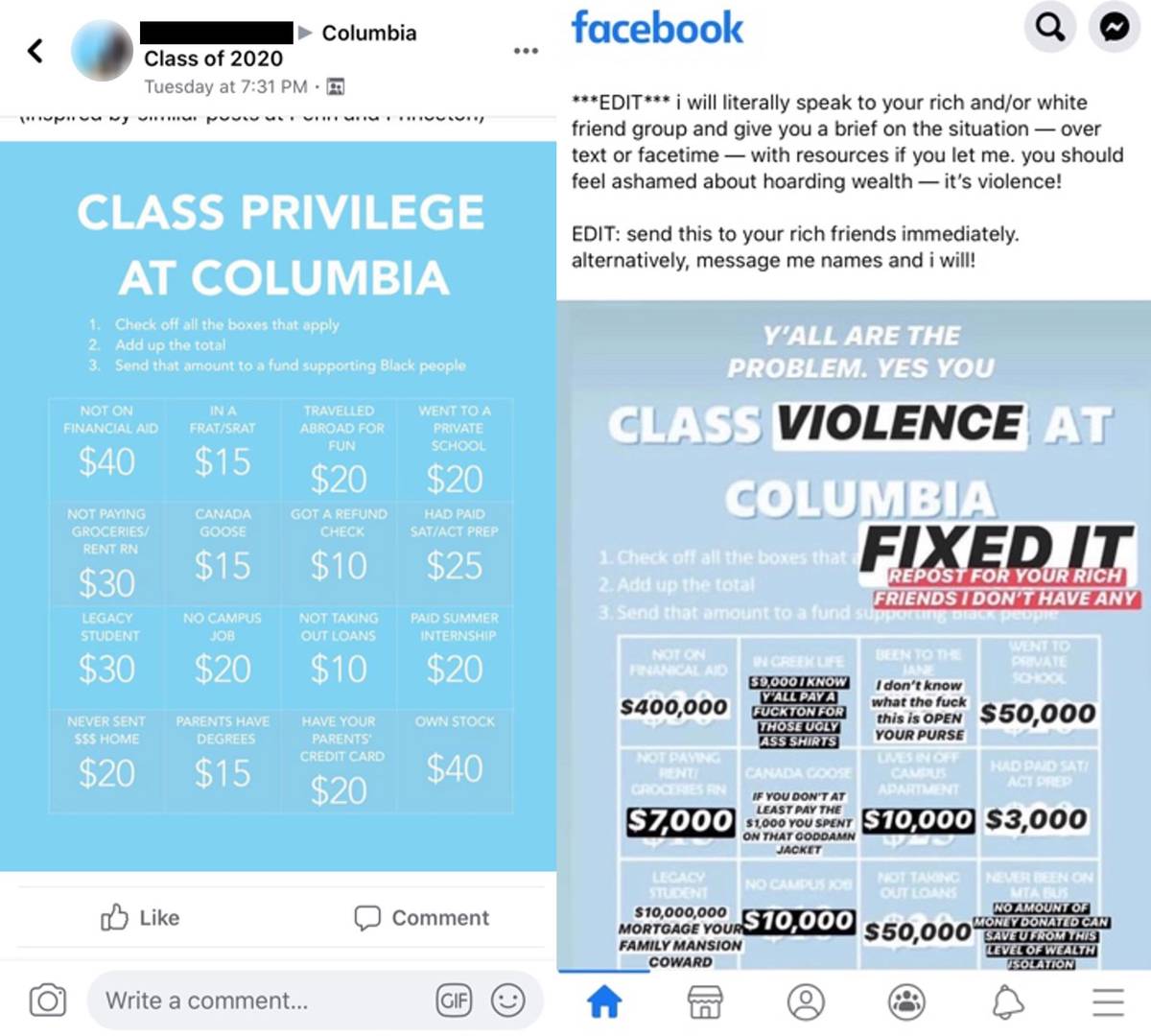
Made a game of “Class Privilege at Columbia” bingo, with squares like “Traveled abroad for fun: $20” and “Own Stock: $40,” which you were meant to tally up and donate the subsequent total to a bail fund or BLM.
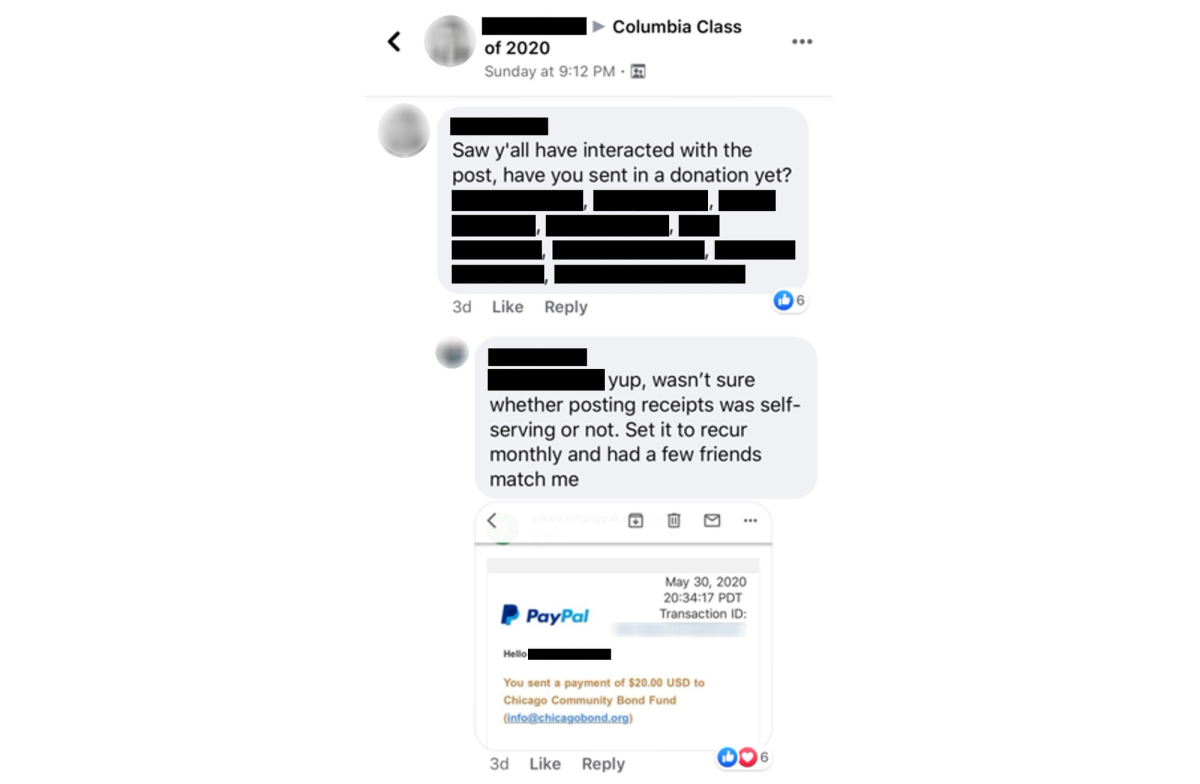
Went through our 2,000-person class of 2020 Facebook group and publicly tagged people, asking them if they’d donated yet and forcing them to post the receipts as proof.
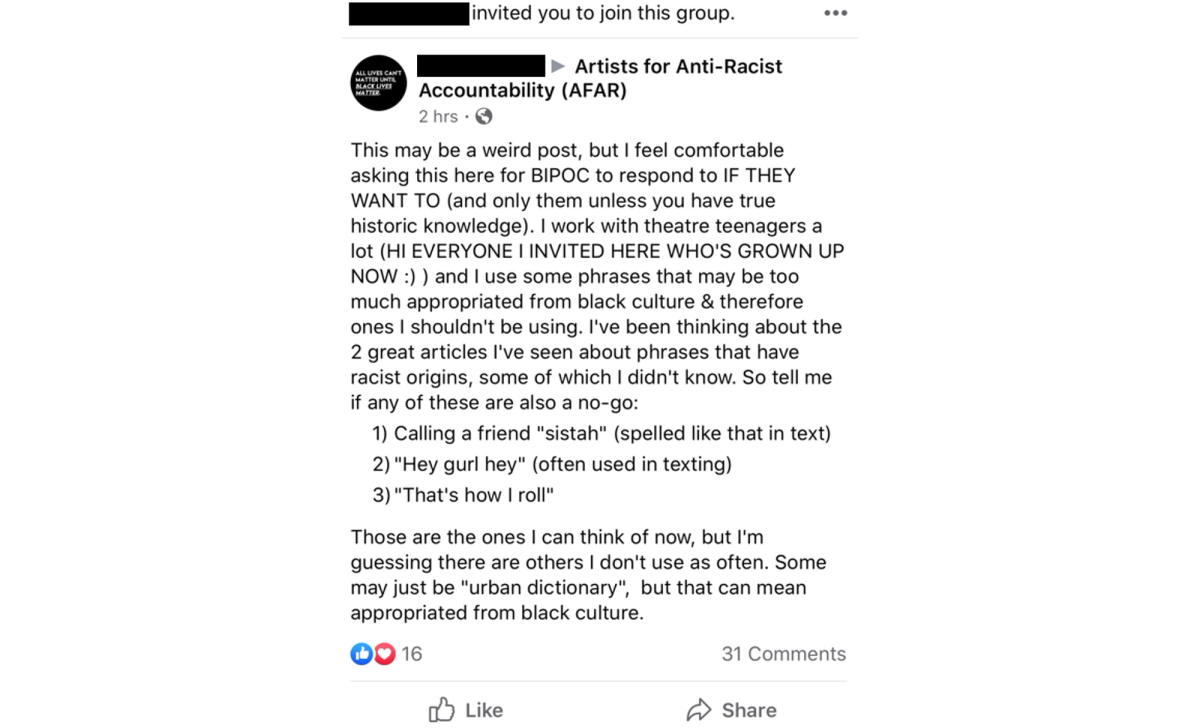
Encouraged people to join accountability groups where they could confess, or people of color would directly tell them, the myriad ways they’d committed microaggressions (I was invited into Artists for Anti-Racist Accountability, where we were instructed not to use phrases appropriated from Black culture, including “That’s how I roll”).
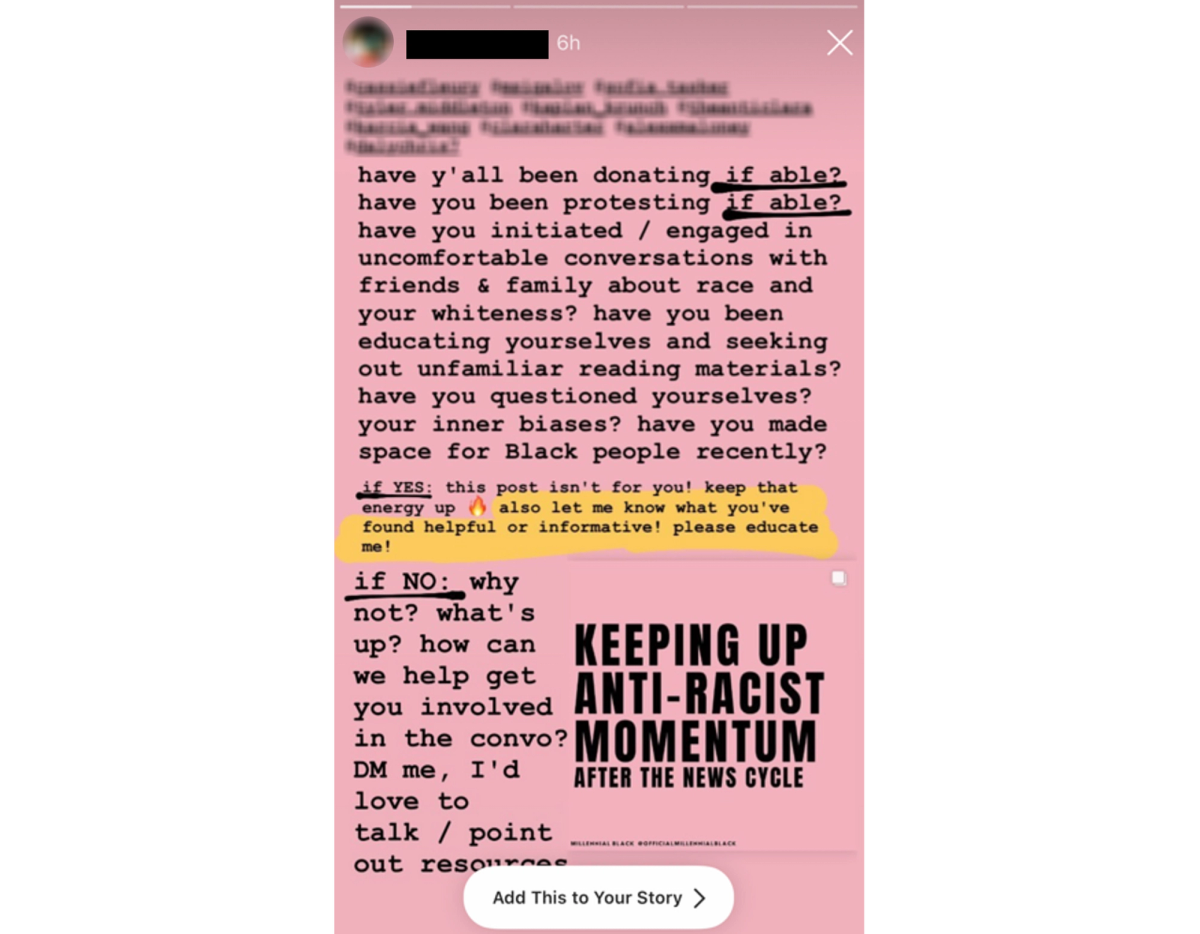
Personally reached out to suspected wealthy white people and advertised who they’d contacted, so everyone else could hold them accountable for “doing the work,” to ask if they’d donated, protested, initiated conversations about whiteness, questioned their inner biases, sought out unfamiliar reading materials, and made space for Black people.
I could go on and on about the bizarre climate that took hold on our campus in 2020. But for now, I am raising these examples to illustrate only one thing: the flagrant disparity between the way my learned classmates treat injustice, suffering, and pain when it belongs to any other marginalized group, and the way they treat injustice, suffering, and pain when the victims are Jews.
Just the other day, my brother, a senior at Cornell, was sitting on his couch with a friend, who made exactly this point about a swastika-emblazoned car that was terrorizing people in his hometown (an incident which barely cracked the non-New York Post news). But my brother and his friend, like most people, are making such points in private, grousing among confidantes and then going back to their campuses or workplaces or friend groups like all is well. The unfairness is so endemic that to even point it out is to launch headlong into a brick wall of condescending and moralizing dismissal.
That was me at Columbia, swallowing my frustration and hurt at how unfair it felt that I was stuck chilling with a girl who shouted over Holocaust commemorations, while everyone else got to receive the balm of immediate social action at the slightest whisper of feeling unsafe. Now, I see that same girl grinning with bloodlust at rallies in the city where we both live, as the campus we once shared erupts into unrest and my brother informs our family chat that Cornell’s Jewish Center for Jewish Living is under lockdown while the FBI investigates online threats to “follow Jewish people home and slit their throats.”
I am raising these examples to illustrate only one thing: the flagrant disparity between the way my learned classmates treat injustice, suffering, and pain when it belongs to any other marginalized group, and the way they treat injustice, suffering, and pain when the victims are Jews.
As it turns out, the double standard I tolerated, to my shame, was not just a pesky social inconvenience: It was a sign of the deep, insidious rot within institutions from which I was supposed to derive a sense of self, as well as a sense of belonging to something higher and better. As Natan Sharansky, the human rights activist and former Soviet refusenik noted, the double standard is a defining feature of antisemitism. It applies to the Jewish state—when Israel is singled out for harsh criticism while glaring human rights abuses in other nations are flatly ignored (did you know that, since April of this year, over 1 million refugees have fled an ongoing mass genocide in Sudan, which is fueled by weapons shipments from Arab countries?) It also applies to the Jewish people, to whom my peers either apply their moral principles more harshly or abandon them entirely when they are confronted with Jewish victims. Today’s double standard comes from elite universities, which found immediate moral clarity in their statements about every other tragedy on Earth yet couldn’t conjure up a few sentences to condemn the horrific terror of Hamas, and their superstar professors, who etch their syllabi with “intersectionality” and “equity” yet cheer on Jew-murdering terrorists as “exhilarating” and pen open letters “recontextualizing” Jewish rape and torture as “exercising a right.”
What’s most disturbing, for me, is that this double standard is also coming from my peers, my friends, my former housemates, who find the time to unlearn every bias and atone for every sin—except for their biases and sins leveled against Jews, who are apparently the world’s only deserving victims. If Jewish babies are slaughtered, then the sickening photographs of their corpses are obviously propaganda. If a missile hits a hospital in Gaza, then it must have been fired by Israel—regardless of what any intelligence service or geolocation data says. How can anyone believe the forensic evidence of Israeli women, including young teenagers, being raped before they were executed, when Hamas denies it?
Over the past few weeks, I have thought about my tolerance of this double standard until my rage made me sick—the number of times I, and Jews across Columbia’s campus, had to grin and bear the reality that our social worlds were governed by an entirely different set of permissions and sensitivities than everyone else’s. I want so badly to travel back in time, whip out a bullhorn at those parties, and scream in everyone’s faces that three years later, this girl who “just really didn’t like Israel” would go on to call the monsters who murdered babies and raped teenage girls the “heroic resistance.”
But I can’t. All I can do is promise myself that this will never happen again, at least not in my own life. I would also encourage everyone—and I know there are many of you—who has felt this unfairness gnawing away at your bones to make the same promise. We are not the ones ripping down missing posters or celebrating deranged murderers, but our uneasy silence has allowed those people to monopolize our public squares until we no longer have space to mourn our dead. The past three weeks are what happens when we stay quiet and let others set the alarming temperature of the air in the elite institutions we inhabit. Because to take a stand would make it harder to enter certain rooms. It would interfere with the work—the increasingly difficult, uncomfortable, queasy-making, indeed disfiguring work—of belonging.
I see clearly now who occupies those rooms—the moral arbiters of our generation, with their “pristine” ethical codes riddled with hypocrisy, their jargon-bloated excuses for antisemitic hate, their hollow pontification about empathy and justice delivered in the same breath with which they rationalize the murder and torture of people who might be my brothers, sisters, parents, grandparents, cousins, or friends. I don’t want to contort myself to be in those rooms anymore. Do you?
Become a member of Tablet Magazine
Ani Wilcenski is Tablet’s audience editor.